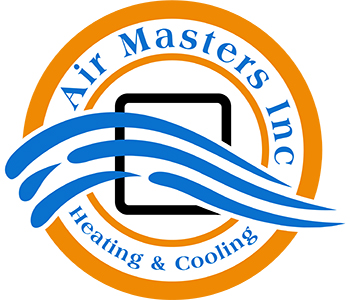
If you’re uncertain whether your Port Orchard residence has bad indoor air quality (IAQ), it likely does.
We are indoors a lot. In fact, we’re in a building up to 90% of the time, according to the U.S. Environmental Protection Agency. And the air inside houses could be 2–5 times worse than outdoors, which could create long-term health problems.
Most Common Sources of Unsatisfactory IAQ
We’ve compiled a list of the most ordinary causes of poor IAQ, the issues they create and how you can remedy these indoor air pollutants. If you’re worried about the air inside your house, we recommend talking with a professional like Air Masters Heating & Cooling about which solutions are ideal for your family.
Volatile Organic Compounds
Volatile organic compounds, or VOCs, are vapors emitted from common household things.
They’re found in paint and stains in addition to:
- Furniture
- Carpet
- Building materials
- Cleaning products
- Cosmetics
- Air fresheners
- Candles
When these fumes accumulate inside, they might irritate your eyes, nose and throat. They can also result in headaches and nausea. Regardless of whether your residence is in a rural or industrial space, an EPA study found indoor levels of these fumes can be 2–5 times greater than the air outside.
Always follow the manufacturer’s instructions when painting or cleaning. Opening a window can help vapors disappear faster.
Air purification systems can also help. This unit partners with your heating and cooling system to enhance indoor air. When seeking one, ensure it’s specifically made to wipe out VOCs.
Dust and Pet Dander
Dust and pet dander can trigger health problems like asthma and allergies, especially when it constantly gets redistributed by your residence’s comfort unit. While you can vacuum more frequently and install an improved air filter, an air filtration system might be a better fit.
This unit hooks to your comfort equipment to give mighty filtration. Some models offer hospital-level filtration for eliminating particles and bioaerosols.
Lingering Odors
Modern homes are tightly sealed to boost energy efficiency. While this is good for your heating and cooling costs, it’s not ideal for your IAQ.
Musty odors can stay around for a greater amount of time as your residence is pulling in reduced fresh air. Since keeping your windows open all year-round isn’t a possibility, here are two approaches you can make your indoor air smell fresher.
An air purification system is placed in your ducts to wipe out odors before they recirculate. Search for one with a carbon filter and the power to break down dangerous VOCs. These units can also help keep your family healthy by getting rid of most bacteria and normal allergy triggers like pollen and mold spores.
A ventilation system removes musty indoor air and exchanges it with crisp outdoor air. There are two kinds of systems (heat recovery and energy recovery), so check with our professionals for more info on which type is right for your house.
Unsteady Humidity
It’s critical your house’s humidity keeps even. Air that’s too humid can cause mold, while dry air can cause respiratory symptoms.
Our techs suggest 40–50% for the best comfort. To keep yours steady, consider getting a whole-home humidifier or whole-home dehumidifier with your HVAC system.
Rather than having to drag a humidifier from room to room, this equipment delivers consistent humidity around your house.
Carbon Monoxide
Carbon monoxide is colorless gas you can’t smell. It occurs when there’s insufficient combustion in fuel-burning equipment, like gas heating systems, water heaters or fireplaces.
It presents a severe health risk. In low levels, it can create flu-like symptoms like headaches and nausea. It can be fatal in large concentrations.
We recommend yearly furnace maintenance to make sure your unit is working like it should. This work allows our specialists to pinpoint issues before they begin, including malfunctions that can lead to carbon monoxide leaks.
The best way to keep your residence free of carbon monoxide is to get detectors. These alarms should be on all floors near bedrooms and living spaces.
Improve Your Residence’s Air Quality with the Air Masters Heating & Cooling Professionals
Know that your home has poor air quality but not sure how to make it better? Or unsure which solution is a good fit for you? Give our kind HVAC professionals a call at 360-205-7115 or contact us online right away. With free estimates and pro service, we’ll help you locate the best solution for your home and budget.

